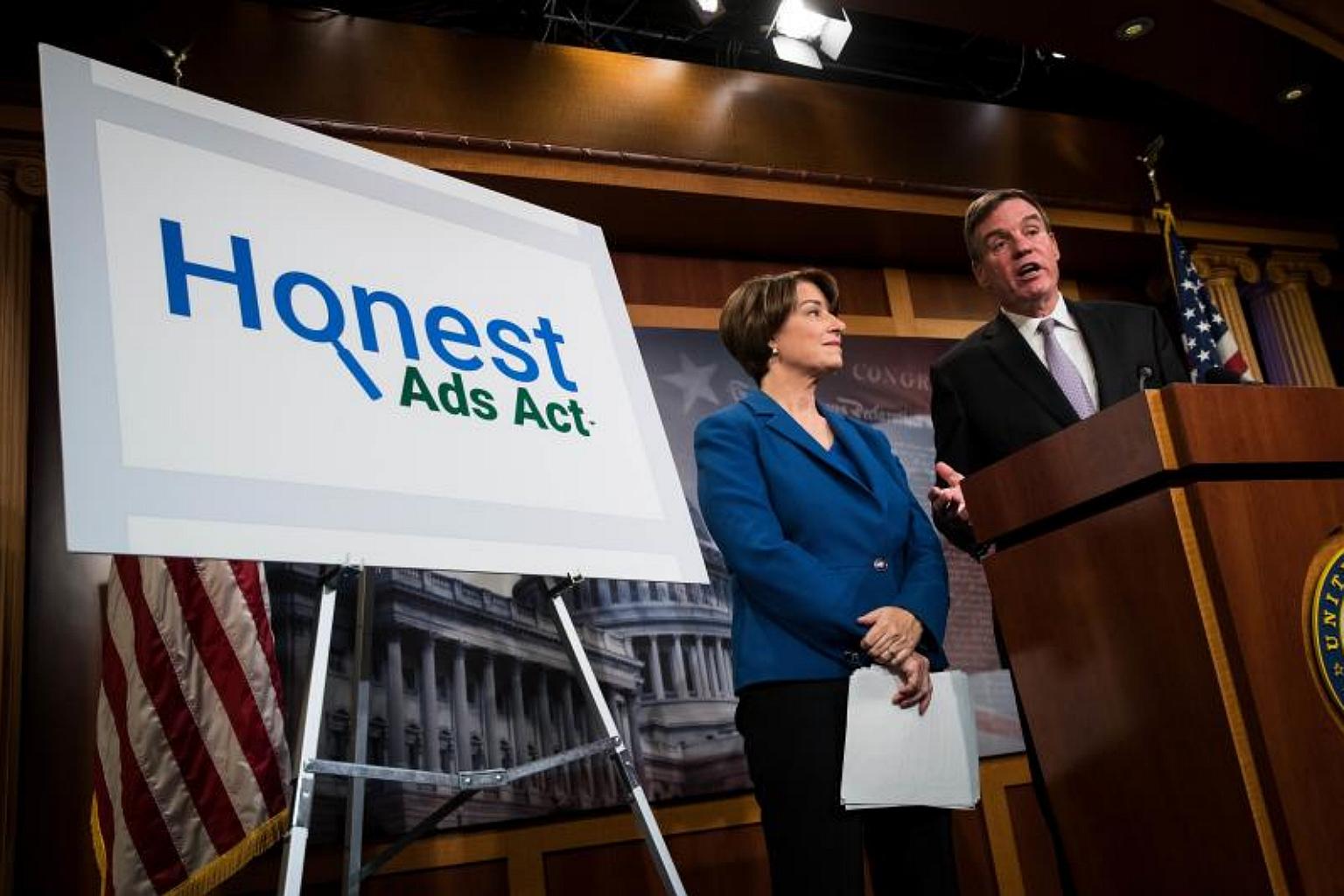Committee of MPs to mull over issue of online falsehoods in Singapore: What other countries are doing to combat problem
Sign up now: Get ST's newsletters delivered to your inbox

US senators have proposed an Honest Ads Act, which requires people who take out political advertisements on television, radio or print to disclose who funded them.
PHOTO: AFP/GETTY IMAGES
SINGAPORE - France is planning to introduce draft legislation that will require websites to identify the people who sponsor content, while the United States is studying a law that will require online companies to release information on who exactly their advertisers are targeting.
These are examples of how countries around the world are combating online falsehoods, cited by the Ministry of Law and Ministry of Communications and Information in a Green Paper on the issue, released on Friday (Jan 5).
In a statement, MinLaw said it intends to appoint a Select Committee to study the problem and recommend how Singapore should respond.
Here are some examples of how France, Germany and the US are tackling the issue.
FRANCE
On Wednesday, French President Emmanuel Macron announced that he will introduce draft legislation to address the spread of false information.
Under the proposed law, websites will have to make public the identities of those who sponsor content. There will also be a cap on the amount of sponsored content on websites.
The law also provides for emergency procedures to be introduced during elections, allowing judges to remove content, close user accounts, or block websites that publish false information during these periods.
GERMANY
A Network Enforcement Act was enacted last year, requiring social networks that have more than two million German users to take down illegal content within 24 hours of it being flagged.
Such content includes hate speech and defamation, but where falsehoods are used to further hate speech, they can be removed through this legislation as well.
Failure to do so could result in fines of up to 50 million euros (approximately S$79.5 million).
UNITED STATES
Senators, while studying other measures, have proposed an Honest Ads Act.
This will require people who take out political advertisements on television, radio or print to disclose who funded the advertisements.
It will also require digital companies to release information on who was targeted by the advertisers and the buyers of the advertisements.


